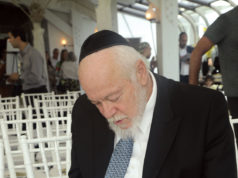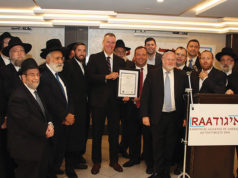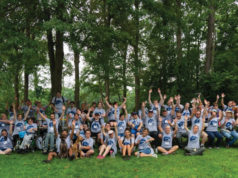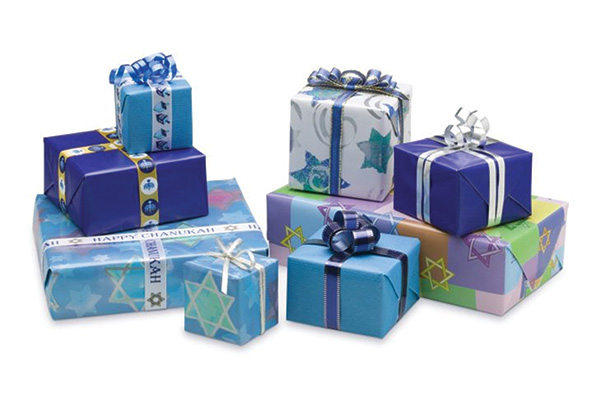
As you begin to explore Hanukkah gifts, please pause and reflect for a moment. What is the greatest gift you received from your parents or grandparents? Maybe it was big or small, costly, or not? As you remember and reflect on this gift, and the story around it, what meaning does this gift have for you? What do you notice?
Where did the custom of giving Hanukkah gifts originate? What’s the point of them?
Research for this article uncovered interesting findings about Hanukkah gifts. There are sources mentioning giving Hanukkah “gelt” (money), and references to giviving charity, especially to Torah scholars. These traditions directly relate to undoing the harsh decrees during the Temple era forbidding teaching Torah and assaulting our Jewish lifestyle and mitzvot. In the holy seforim (books) of Kabbalah, it is written that one can affect atonement for severe sins by doing teshuva (repentance) and giving charity during the days of Hanukkah. Other references to gifts, such as giving on Purim, are a means for creating goodwill and enhancing relationships. There are no Jewish sources for 8 nights of gifts.
Hanukkah’s miracle is a message of Torah light and hope in the longest, darkest nights of winter. This year, with so much turmoil, fear, anxiety, political persecution, and lives lost, it’s as important as ever to celebrate and communicate with our children the ”ness” (miracle) and present-day relevance of Hanukkah. How necessary it is for us to infuse the magic of Hanukkah into our current realities! The big question remains, how can we manage to do so?
How can we get the best results?
Let’s begin with avoiding the mistake of giving a potentially harmful gift. The two biggest mistakes we can make is giving a gift that will damage someone or end up costing them more money and headaches. I remember the story in the early 1980s of a rabbi who received a cellphone as a gift from the congregation. At the time, cell phones cost $3-5 per minute and needed an entire briefcase for the brains and battery. The rabbi said with a smile, “They gave me a present. It costs me $1,000 a month for the service, and I can’t drive 5 minutes in peace and quiet. Some gift.” Also, let’s remain vigilant not to create “Fortnight Zombies” and overexposing our kids to environments or situations they may not be properly prepared or capable of handling.
Three ways to achieve success with our gifts.Give the gift of connection and relationship. What if we commit to sit together as a family near the candles as they burn brightly and share the songs, tefilot, and stories of Hanukkah? Each night, choose a different grandparent or community member to remember and learn from. Revel in stories of heroism, sacrifice, values, ideals, commitments, struggles, and successes. Create questions and dialog around these personalities, their lives, lessons, and how we can apply them to ourselves today. Imagine the positive impact and value of enhancing our children and grandchildren’s lives with role model ancestors they can emulate.
Give the gift of heritage. Most of us look forward to sufganiyot (jelly donuts), ejjeh (latkes), or other specially prepared food customs. Who is going to remember the authentic way to prepare these delicacies? Who is going to replicate the love and care that grandma infused in them? What a delicious treat it will be to bridge the legacy and learn from grandparents how this was done back home for many generations!
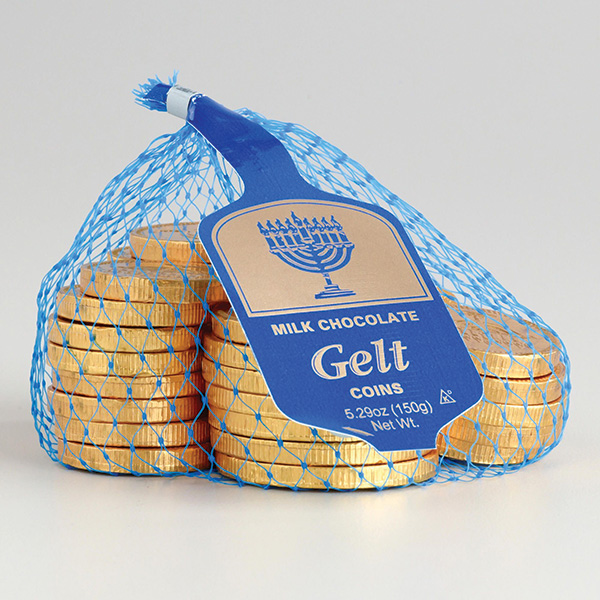
Think outside of the box. What projects, ideas, introductions, and interviews can we create to transmit the rich heritage and minhag (customs) that goes back in our families for thousands of years? Perhaps something forgotten or something so obvious that we never talk about it? What are your ideas and inspirations for connecting the past, present, and future to enhance our generation and future generations in celebrating G-d’s miracles, our survival, and the ability to learn and live Torah? How much rich culture and history can we recover by engaging with our children and connecting them to our mesorah (heritage)?
I believe the greatest gift we can give and receive is the message that G-d loves you, your family loves you, and you love them too. We must continuously be communicating “I love you,” and ensuring that our children hear it and accept it. This message is the gift that will last for all generations to come.

